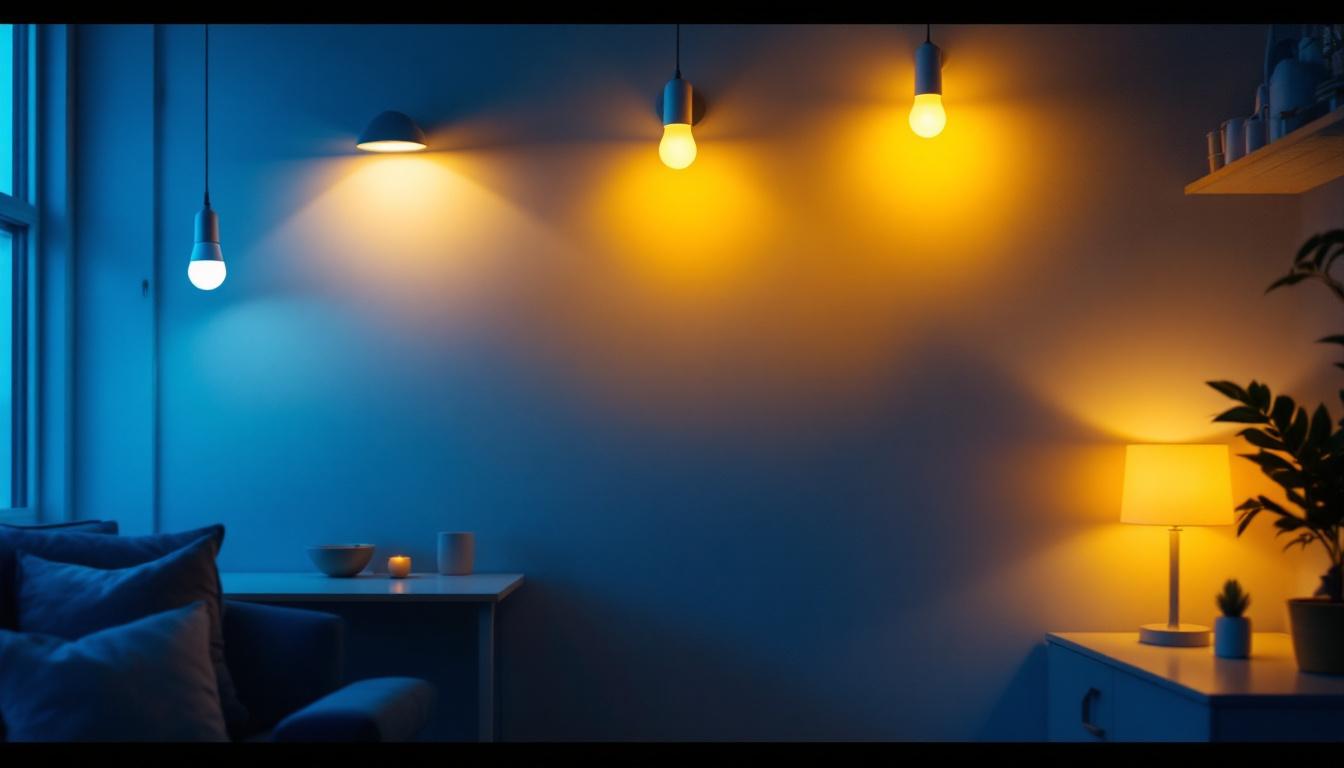
In the ever-evolving world of lighting, contractors face a myriad of challenges and opportunities. From navigating technological advancements to understanding client needs, being a successful lighting contractor requires a blend of technical expertise, creativity, and business acumen. This article aims to provide valuable advice tailored specifically for lighting contractors, helping them to thrive in a competitive landscape.
Staying ahead in the lighting industry necessitates a keen awareness of market trends. The landscape is continuously changing, driven by innovations in technology and shifting consumer preferences. Lighting contractors must adapt to these trends to remain relevant and competitive.
Energy efficiency is no longer just a trend; it has become a standard expectation among clients. With increasing awareness of environmental issues, customers are seeking solutions that reduce energy consumption and lower utility bills. Lighting contractors should familiarize themselves with energy-efficient products, such as LED fixtures, which not only save energy but also offer longer lifespans compared to traditional lighting options.
Promoting energy-efficient solutions can enhance a contractor’s reputation and attract environmentally conscious clients. Additionally, many regions offer incentives for energy-efficient installations, which can be a selling point when discussing projects with potential customers. Furthermore, as energy costs continue to rise, the demand for energy-efficient lighting solutions is expected to grow, making it a crucial area for contractors to focus on. By staying informed about the latest advancements in energy-efficient technologies, contractors can provide clients with the most current and effective solutions available.
As technology advances, smart lighting systems are gaining traction. These systems allow users to control their lighting through smartphones or voice-activated devices, providing convenience and customization. Contractors should educate themselves about the latest smart lighting technologies, including integration with home automation systems.
Offering smart lighting solutions can set a contractor apart from competitors. By showcasing the benefits of these systems, such as increased energy savings and enhanced user experience, contractors can appeal to a tech-savvy clientele looking for modern solutions. Moreover, smart lighting can be tailored to fit various settings, from residential homes to commercial spaces, allowing for dynamic lighting that can change based on the time of day or specific activities. This adaptability not only enhances the ambiance of a space but also contributes to energy savings, making it an attractive option for clients looking to optimize their environments. As the Internet of Things (IoT) continues to expand, the integration of smart lighting with other smart home devices will become increasingly seamless, further driving demand for these innovative solutions.
Successful lighting contractors understand that strong client relationships are the foundation of their business. Establishing trust and maintaining open communication can lead to repeat business and referrals, which are crucial for long-term success.
Clear communication is essential throughout the project lifecycle. From the initial consultation to the final installation, keeping clients informed about timelines, costs, and potential challenges fosters trust. Contractors should actively listen to client needs and preferences, ensuring that their vision is accurately translated into the final product.
Regular updates during the project can help manage client expectations and reduce misunderstandings. Utilizing project management tools can aid in tracking progress and sharing information with clients in real-time, enhancing transparency and satisfaction.
Every client is unique, and providing personalized service can significantly enhance the customer experience. Lighting contractors should take the time to understand each client’s specific needs, preferences, and budget constraints. Tailoring solutions to meet these requirements not only demonstrates professionalism but also shows clients that their satisfaction is a priority.
Offering customized lighting designs can also help contractors stand out in a crowded marketplace. By showcasing creativity and flexibility, contractors can build a loyal client base that values their expertise and attention to detail.
Technical knowledge is at the core of a lighting contractor’s skill set. Staying updated on the latest technologies and installation techniques is crucial for delivering high-quality work. Continuous education and training can help contractors enhance their technical expertise and adapt to industry changes.
Investing in training and certification can significantly enhance a contractor’s credibility. Many organizations offer courses and certifications in lighting design, energy efficiency, and smart lighting technologies. By obtaining these credentials, contractors can demonstrate their commitment to professionalism and stay competitive in the market.
Moreover, ongoing training can help contractors keep pace with the rapid advancements in lighting technology. Understanding new products and installation methods can lead to more efficient workflows and higher-quality installations, ultimately benefiting both the contractor and the client.
Compliance with local electrical codes and regulations is non-negotiable for lighting contractors. A thorough understanding of these codes ensures that installations are safe, legal, and up to industry standards. Contractors should regularly review and familiarize themselves with relevant regulations in their area.
Staying compliant not only protects the contractor from potential legal issues but also enhances their reputation as a reliable professional. Clients are more likely to trust contractors who prioritize safety and adhere to established guidelines.
In a competitive industry, effective marketing is essential for attracting new clients and growing a lighting contracting business. Contractors should develop a comprehensive marketing strategy that highlights their unique offerings and showcases their expertise.
Digital marketing has become a powerful tool for contractors looking to reach a wider audience. Establishing a professional website and utilizing social media platforms can significantly enhance visibility. A well-designed website should showcase past projects, client testimonials, and detailed service offerings.
Social media platforms, such as Instagram and Facebook, provide an excellent opportunity for contractors to share visually appealing content. Posting high-quality images of completed projects, along with informative captions, can engage potential clients and showcase the contractor’s capabilities.
Networking is a vital aspect of growing a lighting contracting business. Building relationships with other professionals in the industry, such as architects, interior designers, and general contractors, can lead to valuable referrals and collaborative opportunities. Attending industry events and trade shows can also help contractors connect with potential clients and stay informed about market trends.
Forming partnerships with local suppliers can provide contractors with access to the latest products and technologies, further enhancing their service offerings. By fostering these relationships, contractors can create a robust network that supports their business growth.
Financial management is a critical component of running a successful lighting contracting business. Contractors must develop sound financial practices to ensure profitability and sustainability.
Creating a detailed budget for each project is essential for managing costs effectively. Contractors should account for all expenses, including materials, labor, and overhead, to ensure that projects remain profitable. Regularly reviewing budgets and adjusting as necessary can help prevent cost overruns and financial strain.
Implementing cost control measures, such as negotiating with suppliers for better pricing or finding more efficient installation methods, can also contribute to improved profitability. By keeping a close eye on expenses, contractors can maximize their margins and ensure financial stability.
Timely invoicing and payment management are crucial for maintaining cash flow. Contractors should establish clear payment terms with clients upfront and send invoices promptly upon project completion or at agreed-upon milestones. Utilizing invoicing software can streamline the process and reduce administrative burdens.
Additionally, offering multiple payment options can enhance client satisfaction and encourage prompt payments. Contractors should also be prepared to follow up on overdue invoices professionally, ensuring that they maintain positive client relationships while managing their finances effectively.
Safety should always be a top priority for lighting contractors. Ensuring a safe working environment not only protects employees but also enhances the contractor’s reputation and reliability.
Establishing and enforcing safety protocols is essential for any lighting contracting business. Contractors should provide training for their employees on safe work practices, including proper handling of tools and equipment, as well as awareness of electrical hazards. Regular safety meetings can help reinforce these protocols and keep safety at the forefront of the team’s mind.
Additionally, ensuring that all employees have access to personal protective equipment (PPE) is vital. By prioritizing safety, contractors can reduce the risk of accidents and injuries, ultimately leading to a more productive and efficient work environment.
In addition to safety protocols, lighting contractors must stay informed about relevant regulations and compliance requirements. This includes not only electrical codes but also environmental regulations related to waste disposal and energy efficiency. Keeping abreast of these regulations can help contractors avoid legal issues and enhance their credibility in the industry.
Regular training sessions and workshops can help contractors and their teams stay updated on any changes in regulations, ensuring that they remain compliant and maintain high standards of safety and quality.
Being a successful lighting contractor involves a multifaceted approach that encompasses market awareness, client relationships, technical expertise, effective marketing, financial management, and safety compliance. By embracing these principles and continuously seeking to improve, contractors can position themselves for long-term success in a competitive industry.
As the lighting landscape continues to evolve, staying adaptable and open to new ideas will be key. By focusing on innovation, quality service, and strong client relationships, lighting contractors can not only meet but exceed client expectations, ultimately leading to a thriving business.
Ready to elevate your lighting game? At LumenWholesale, we understand the needs of lighting contractors and are dedicated to providing you with top-quality, spec-grade lighting products at unbeatable wholesale prices. Say goodbye to local distributor markups and hello to a vast selection of reliable, high-performance lighting that meets the highest industry standards. Make your next project shine with the perfect blend of quality, affordability, and convenience. Take advantage of our hassle-free bulk buying and free shipping today. Discover Wholesale Lighting at the Best Value and transform your lighting solutions with LumenWholesale.

Discover the top extractor roof fans for gyms that offer quiet operation and enhanced efficiency, perfect for lighting contractors looking to optimize ventilation and energy use.

Discover how A19 LED bulbs can revolutionize your lighting installation projects with enhanced energy efficiency, superior brightness, and longer lifespan.

Discover how ceiling LED lights are revolutionizing the lighting industry for contractors.

Discover essential compliance tips for small hanging kitchen lights.